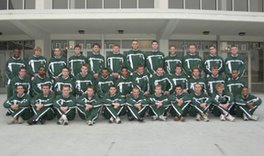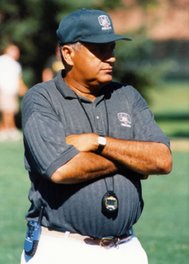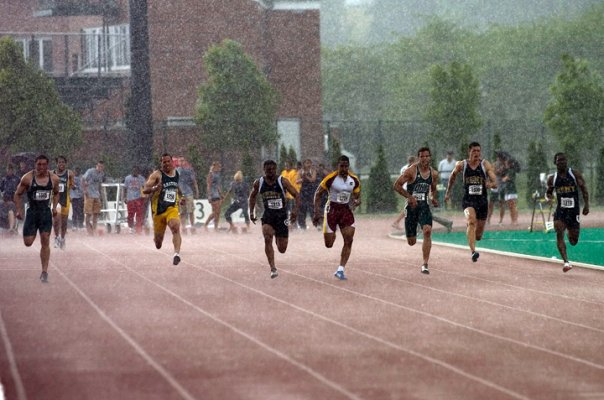From the Athens News:
Reader's Forum: OU and athletics dept. need to reconsider poor decision to cut sports
By Megan Sanders
As a former Ohio lacrosse player from 1999 through 2002, I am extremely disappointed by not only Ohio University's decision to cut four varsity sports from the athletic program, but also the way in which it was made. Even after reading the statements made and interviews with the athletics department and office of the president, I remain confused and lack clarity as to the true reasons these programs were cut and what alternative solutions were or, quite possibly, were not considered.
I am asking that the university reconsider this decision and strongly encourage the decision makers to consider the information below before proceeding.
From what I do understand, Title IX was one of the reasons the women's lacrosse program was reinstated at Ohio University after almost a 20-year hiatus. Unfortunately, now, Title IX is also one of the reasons being cited for its dissolution. It is clear that this law is no longer working as it was intended. Fortunately, though, there are three ways in which a university can stay compliant with the law. Alas, Ohio University only considered one of those ways before deciding to dissolve four of its athletic programs.
Were the alternative prongs of compliance to Title IX considered? What steps were taken during this process to reach this decision? And, most importantly, what alternatives could have been explored to prevent simply cutting four athletic programs and taking the easiest way out of the financial and compliant troubles?
In addition to its compliance with Title IX, the university stated the athletics department's $4 million financial deficit as a reason for cutting these sports programs. How did the university get into this deficit? Were the current athletes and coaches aware of the financial distress of the department? What was being done to prevent the growing deficit? It is somewhat incomprehensible to me that an athletic department of Ohio's size was not able to operate within its budget and furthermore was allowed to continue operating in a deficit for many years.
Why were the current athletes, or even the Student Athlete Advisory Committee, not consulted in the decision that consisted of "hundreds of hours of comprehensive research" (according to Kirby Hocutt in a Jan. 25 Post article)? As a former athlete, I can't imagine being treated with such disregard.
I can understand the betrayal, frustration and confusion the current athletes must feel after representing their university with dedication, pride and commitment, only to find out one day that the university has decided to dissolve the program without seeking the opinions, thoughts or concerns of those directly affected.
Specifically, I am most concerned about those athletes who were recruited to compete at Ohio, who signed letters of intent committing to represent the school in their respective sports for four years. Clearly, this decision is one that has been under consideration for months, so why did the university continue to allow these programs to recruit athletes, knowing significant changes were going to be made, affecting numerous student-athletes?
This is a decision that does not just affect the financial and compliant state of the university, but the actual lives of athletes and coaches; athletes who chose Ohio over other schools, other scholarship offers and whose future athletic and academic careers are greatly affected by their decision to attend Ohio University. Why was a phase-out program not considered to allow these athletes to complete their collegiate career at Ohio, as outlined in their letters of intent?
In addition to the effect on these athletes and coaches, this decision has great impact on the lacrosse community. With about 1,400 high schools currently offering lacrosse and almost 52,000 high school girls' lacrosse players (according to the National Federation of State High School Associations), it is unfortunate that OU fails to recognize its potential in playing a significant role in the growth of this sport. This is particularly disappointing and equally confusing as I learn of other Division I schools, such as the University of Cincinnati and the University of Louisville, that are adding the sport to their athletic programs.
I think what is most disappointing and heartbreaking to me about this recent decision is the fact that future athletes will not have the opportunity to compete at Ohio University. My experience at Ohio as a student athlete was invaluable in terms of the friendships I gained, the leadership skills I learned, the confidence I grew, and the discipline I practiced. I feel grateful that I can always reflect back on my rewarding, fun and challenging experience there, and no one can take that away from me.
However, as a pioneer of the inaugural season of the reinstated lacrosse program, I feel betrayed that all of the time, work and heart my fellow teammates and I contributed to building the program and growing the sport at OU and in the state of Ohio is being ignored and disrespected. Most of all, I am frustrated that I was never given the opportunity to voice opinions about this decision.
Unfortunately, this affects my impression of OU and my current opinions about not only the athletics department, but the university as a whole. I can no longer say with confidence and honesty that I plan on supporting my alma mater in the future, whether it is financially, athletically or academically.
In the best interest of the current student athletes, coaches, supporters and alumni of OU, I urge the decision makers of the university to reconsider this swift and faulty decision. Involve those directly affected to seek out alternative solutions to the issues at hand. I believe a decision is never final and that reconsidering these decisions in an ethical, open and honest way can save the university from the poor image it is achieving.
Editor's note: Megan Sanders was a captain of the Ohio University women's lacrosse team and is a 2002 graduate currently attending Xavier University for a graduate degree in Montessori Education.
Thursday, February 1, 2007
Subscribe to:
Post Comments (Atom)




















No comments:
Post a Comment